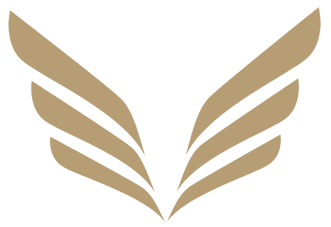Welcome back. If you have been reading my past blogs on financial literacy, you will see that the poor work hard for their money while the rich use money (including borrowed money) to work for them.
The rich lend to the poor and get richer while the poor borrow and got poorer. Does this sound familiar? On the flip-side, the rich lend to the rich and both get richer. Does this sound familiar too?
I write these because I have seen first-hand how undisciplined consumers got into consumer loans and spiraled into a vicious cycle of poverty. They are the people I grow up with. That they will be okay if they made the minimum payment every month. I saw my working-class parents work hard, owned a home while accumulating unpaid consumer debts. I have seen my clients get to a disadvantage position from unpaid credit cards. I believe they fall into the debt trap because of the lack of understanding of borrowed money and discipline.
To understand the simplicity, we must first understand loans and how the bank works. The bank will lend to its AAA clients at a prime interest rate +/- 1%. That being said, there are various types of loans - mortgage, line-of-credit (home-line/personal/business), personal/business loans, bank credit cards, retail credit cards, payday loans, and the black market. The higher risks the lender deemed the borrower, the higher the interest rates.
A mortgage loan is borrowed money for real estate - for personal/business or investment. Because they are backed by real property, interest rates tend to be much lower. In today's economy, AAA residential mortgage rates tend to be below prime. If it is for business purposes, the interest will likely be prime + 2-3%. If the mortgage is borrowed from B- lenders, the interest rate will be higher and C lenders the highest. Unless you have a home-based business, own commercial space, or own real estate for rental income, mortgage interest payments can be used as business expenses. With real property, with time it stands an excellent chance to appreciate in value.
Line of credit. There are two types of line of credit - home-line of credit (backed by real estate) and unsecured line of credit. For those with a home-line of credit that pays a low-interest rate, you can convert them into mortgages and invest in real property should an opportunity knock. The line of credit used for investing in appreciating assets is a win-win. Renovating your home using line-of-credit is also a win-win because your home will go up in value. However, you must SELF setup repayment every month within a specific time. If you must use the line of credit to finance a depreciating motor vehicle, please ask the car dealership for financing/leasing instead. The real purpose of a line of credit is meant to meet short-term personal/business cash flow short-fall. For those with an unsecured line of credit, interest charges is prime + 4.5-6.5%. However, many businesses are dependent on line-of-credit to operate their business for survival. Debt-free businesses stand a better chance of survival from major crises and stand a better chance of expansion should opportunity knock. Debt-free businesses can easily get loans from AAA lenders.
Credit cards. There are two main categories of credit cards. What they have in common is that they lend you money to spend interest-free. However, the interest-free grace period is a maximum of 30 days. If you overstayed the grace period, you will be charged interest. If you have a balance on the credit card, you will be charged the whole amount for the period. The preferred credit cards are issued by the bank. The other type is the retail credit cards which are issued by big departmental stores like the brick or home depot. The preferred credit cards charge 19.99% while the retail credit card charges 29.99%. The purpose of credit cards is short-term convenience. It is not purposed for cash withdrawals or long-term borrowings. This type of loan is the number one killer that gets many undisciplined consumers into the debt trap. However, if you have extra cash to invest, do invest in financial institution mutual funds. You not only are the client, but also the owner of the financial institution.
Payday loan. These are loans for people who fall through the cracks in the financial system. They are the ones who live on the edge, close to being homeless. The most vulnerable and living in a constant vicious cycle of poverty. They are easy prey for predators. Often easily falling into scams. Payday loan charges up to 60% interest. If you are in this position, seek professional help. They can help you reduce your debt and offer concrete financial planning.
Black-market loan. These are people who are more desperate than people taking payday loans. If you are in this position, seek professional help before you lose everything you have built and dream.
The only way to get ahead financially is to be disciplined. Spend what you have, follow the 10% pay yourself rule, invest in equities, and pay your credit card on time. The point I want to make is you do not need to be rich to become rich. Neither do you want to help the rich get richer? You want to use the rich to get richer. This is what it means to be a wealthy barber.
When you subscribe to the blog, we will send you an e-mail when there are new updates on the site so you wouldn't miss them.
